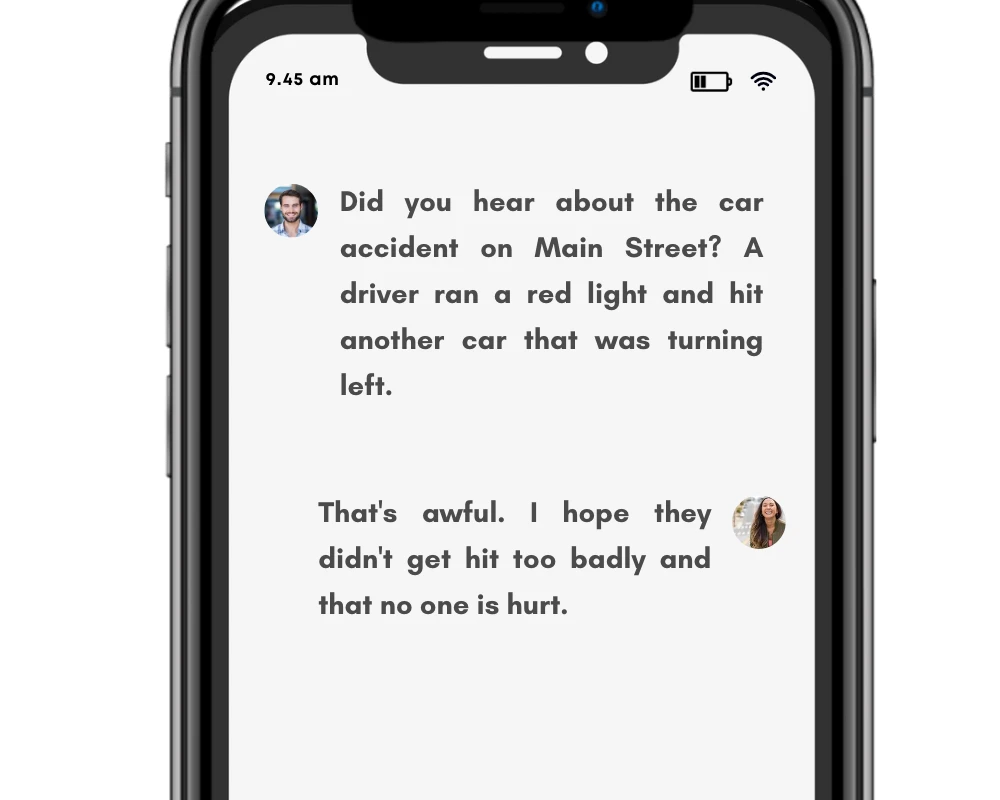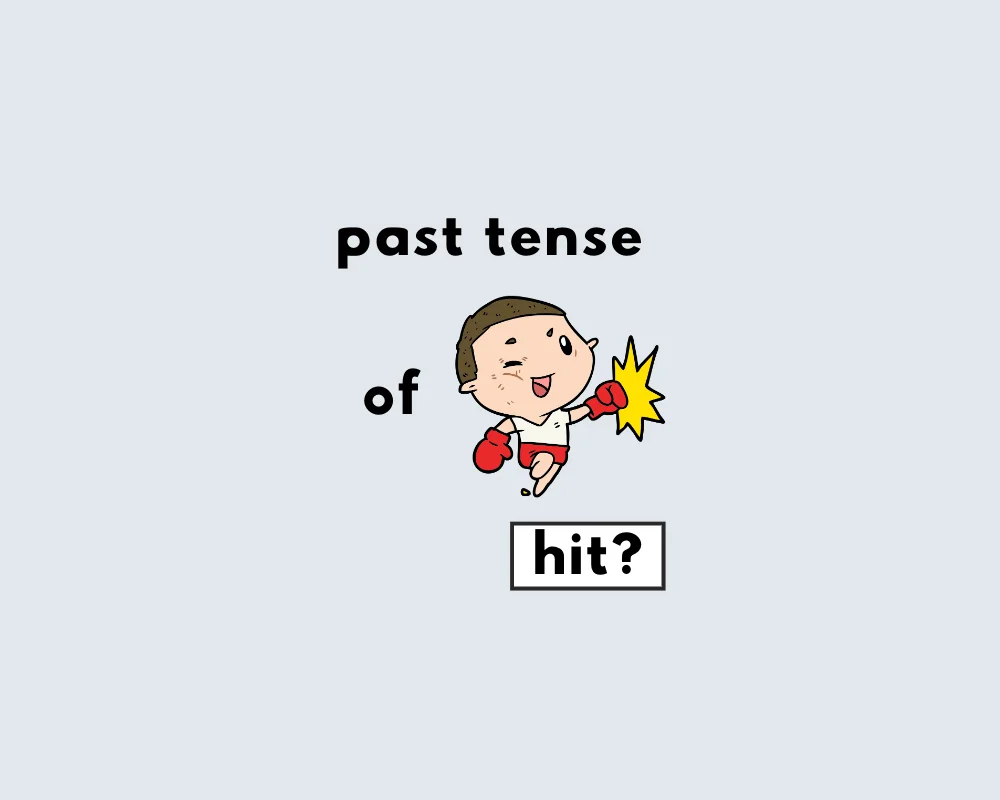
Hit or Hitted? What’s the past tense of “hit”?
The verb hit is an irregular verb, since it doesn’t end in –ed in either of its past tenses. It also stays the same in the simple present and past.
I hit this punching bag every day.
I’ve hit my goal today!
I hitted the ball too hard.
They hit the piñata before the candy spilled out everywhere.
Hit or hitted?
The verb hit, as described by Merriam-Webster, is “striking a person, animal, or object with a forceful blow”. To hit something means to physically strike it with force; while to hit someone means to cause them physical harm or injury through the use of force.
The word hit also has a figurative meaning, which is to “reach or achieve a specified level or quality,” or “causing to come into contact or collision with something.”
Verb forms of “hit”
| present | past | future | |
|---|---|---|---|
| simple | I hit | I hit | I will hit |
| continuous | I am hitting | I was hitting | I will be hitting |
| perfect | I have hit | I had hit | I will have hit |
| perfect continuous | I have been hitting | I had been hitting | I will have been hitting |
Past tense of hit vs. past participle
The simple past tense conjugation and past participle of hit are both “hit”. So, whether it’s in sentences in the present or past, hit stays the same.
As an adjective, hit appears on its own or in a participle phrase; (that is, a phrase that uses a participle but works like an adjective).
Practice using the verb in different tenses with example sentences to memorize the correct forms.
Examples of hit in the present tense
| 1. I hit the jackpot. |
| 2. She hits her personal best each morning at the gym. |
| 3. Harry hits the target with tremendous accuracy. |
| 4. Kevin and I hit the road early to go to the cottage. |
| 5. Linda hits the punching bag in her basement daily. |
Examples of hit in the past tense
| 1. A train hit their car again. |
| 2. You hit the nail again. |
| 3. And then it hit her. |
| 4. I’d never hit you. |
| 5. She wanted to hit him. |
Examples of the verb hit as an adjective
In these examples, the past participle “hit” describes a noun (e.g. “song,” “TV show,” “movie,” “play”) that has been successful or popular:
| 1. The hit song played on the radio. |
| 2. The hit TV show had millions of viewers. |
| 3. The hit movie was a blockbuster success. |
| 4. The hit play ran for months on Broadway. |
| 5. The hit novel was turned into a major motion picture. |
Origin of the verb to hit
From Etymonline on hit (v.):
| Late Old English hyttan, hittan “come upon, meet with, fall in with, ‘hit’ upon,” from a Scandinavian source such as Old Norse hitta “to light upon, meet with,” also “to hit, strike”. |
FAQs
What is the past tense of hit?
The past tense of “hit” is “hit”. It is an irregular verb and stays the same in the simple past and past participle forms, unlike regular verbs that add -ed.
Is the verb hit regular or irregular?
The verb “hit” is irregular. It belongs to a group of irregular verbs, such as bet, cut, shut, and spread, that have the same form for the base verb, simple past, and past participle.
Do you use “hit” or “hitted”?
You use “hit”. The form “hitted” is incorrect. “Hit” is an irregular verb and does not add -ed in its past tenses; its simple past tense and past participle are both “hit”.
What are the past forms of hit?
The simple past tense of “hit” is “hit”. The past participle is also “hit”. The verb remains the same across present, simple past, and past participle forms because it is irregular.
Are past tense and participle of hit the same?
Yes, the simple past tense conjugation and the past participle of “hit” are both “hit”. The verb stays the same across different tenses due to being irregular.
Learn more about verbs
| Types of verbs & verb tenses | what’s the past tense of …? |
|---|---|
| forms of ‘to be’ | … seek? |
| auxiliary verbs | … teach? |
| present tense | … catch? |
| future tense | … buy? |
| past tense | … read? |
| perfect tense | … draw? |
| transitive vs. intransitive | … drive? |
| participles | … throw? |
| irregular verbs | … lead? |
| modals | … win? |
Practice: Irregular verbs
He accidentally ______ his thumb with a hammer yesterday.
The ball has ______ the window.
If you ______ the brakes too hard, the car may skid.
The storm ______ our town last night.
He has ______ the target every time.
Yash, D. "How to Use Hit in the Past Tense? Hit or Hitted*?." Grammarflex, Sep 4, 2025, https://grammarflex.com/hit-past-tense/.








